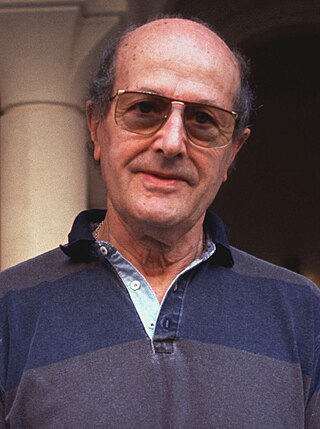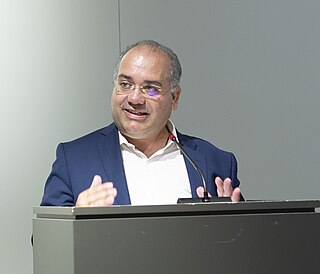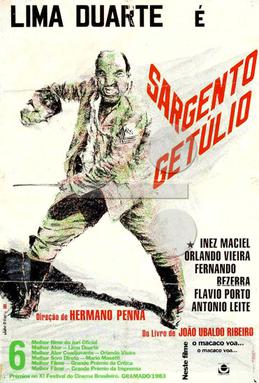| Word and Utopia | |
|---|---|
| Directed by | Manoel de Oliveira |
| Written by | Manoel de Oliveira |
| Produced by | Paulo Branco |
| Starring | Lima Duarte Luís Miguel Cintra Ricardo Trêpa |
| Cinematography | Renato Berta |
| Edited by | Valérie Loiseleux |
Release date |
|
Running time | 130 minutes |
| Country | Portugal |
| Language | Portuguese |
Word and Utopia (Palavra e Utopia) is a 2000 Portuguese film directed by Manoel de Oliveira. It was screened in competition at the 2000 Venice Film Festival.

The culture of Portugal designates the cultural practices and traditions of the Portuguese people. It is rooted on the interactions between many differnet civilizations that inhabited the area during the past millennia. From prehistoric cultures, to its Pre-Roman civilizations, passing through its contacts with the Phoenician-Carthaginian world, the Roman period, the Germanic invasions of the Suebi, Buri and Visigoths, Viking incursions, Sephardic Jewish settlement, and finally, the Moorish Umayyad invasion of Hispania and the subsequent expulsion during the Reconquista, all have influenced the country's culture and history.

António Vieira was a Portuguese Jesuit priest, diplomat, orator, preacher, philosopher, writer, and member of the Royal Council to the King of Portugal.
The Ponta Delgada Football Association is the governing body for association football and futsal competitions in the Portuguese former-district of Ponta Delgada. This organization regulates football in the Azorean islands of São Miguel and Santa Maria.

Manoel Cândido Pinto de Oliveira was a Portuguese film director and screenwriter born in Cedofeita, Porto. He first began making films in 1927, when he and some friends attempted to make a film about World War I. In 1931, he completed his first film Douro, Faina Fluvial, a documentary about his home city Porto made in the city-symphony genre. He made his feature film debut in 1942 with Aniki-Bóbó and continued to make shorts and documentaries for the next 30 years, gaining a minimal amount of recognition without being considered a major world film director.

The Cinema of Portugal started with the birth of the medium in the late 19th century. Cinema was introduced in Portugal in 1896 with the screening of foreign films and the first Portuguese film was Saída do Pessoal Operário da Fábrica Confiança, made in the same year. The first movie theater opened in 1904 and the first scripted Portuguese film was O Rapto de Uma Actriz (1907). The first all-talking sound film, A Severa, was made in 1931. Starting in 1933, with A Canção de Lisboa, the Golden Age would last the next two decades, with films such as O Pátio das Cantigas (1942) and A Menina da Rádio (1944). Aniki-Bóbó (1942), Manoel de Oliveira's first feature film, marked a milestone, with a realist style predating Italian neorealism by a few years. In the 1950s the industry stagnated. The early 1960s saw the birth of the Cinema Novo movement, showing realism in film, in the vein of Italian neorealism and the French New Wave, with films like Dom Roberto (1962) and Os Verdes Anos (1963). The movement became particularly relevant after the Carnation Revolution of 1974. In 1989, João César Monteiro's Recordações da Casa Amarela won the Silver Lion at the Venice Film Festival and in 2009, João Salaviza's Arena won the Short Film Palme d'Or at the Cannes Film Festival. Several other Portuguese films have been in competition for major film awards like the Palme d'Or and the Golden Bear. João Sete Sete (2006) was the first Portuguese animated feature film. Portuguese cinema is significantly supported by the State, with the government's Instituto do Cinema e do Audiovisual giving films financial support.
Leopoldo Laborde is a Mexican film director, screenwriter, photographer, editor and self-made producer.

O Fantasma is a 2000 Portuguese erotic drama film directed by João Pedro Rodrigues and produced by the independent production company Rosa Filmes.
No, or the Vain Glory of Command is a 1990 Portuguese film directed by Manoel de Oliveira. Starring Luís Miguel Cintra and Miguel Guilherme, the film portrays a series of defeats in Portuguese military history—such as the assassination of Viriathus, the Battle of Toro, the failed attempt at Iberian Union under Afonso of Portugal and Isabella of Spain, and the Battle of Alcácer Quibir. Additionally, it includes the episode of the Island of Love from The Lusiads. These events are recounted through flashbacks as a Portuguese lieutenant, stationed in an African territory during the Portuguese Colonial War (1961–74), narrates them while marching in 1974. He effortlessly draws his comrades into philosophical discussions, even as their small contingent endures surprise attacks from independence guerrillas.

The 57th annual Venice International Film Festival was held between 30 August to 9 September 2000.

José Eduardo Franco is a Full Professor of the Aberta University and is the Director of the UNESCO/CIPSH Chair for Global Studies in this institution. Currently coordinates the Doctoral Program in Global Studies in the Aberta University. Member of the Portuguese Academy of History. Holds a PhD in History and Civilizations from the École des Hautes Études en Sciences Sociales of Paris and a PhD in Culture from the University of Aveiro, a Master’s Degree in Modern History from the Faculty of Letters of the University of Lisbon and a Master’s Degree in Sciences of Education from the Faculty of Psychology and Education Sciences of the University of Lisbon.

The Cannibals is a 1988 Portuguese drama film directed by Manoel de Oliveira. It was entered into the 1988 Cannes Film Festival. The film was selected as the Portuguese entry for the Best Foreign Language Film at the 62nd Academy Awards, but was not accepted as a nominee.
Morning Undersea is a 1980 Portuguese drama film directed by Lauro António. It was entered into the 12th Moscow International Film Festival where it won a Special Diploma. The film was also selected as the Portuguese entry for the Best Foreign Language Film at the 53rd Academy Awards, but was not accepted as a nominee.
Magic Mirror is a 2005 Portuguese film directed by Manoel de Oliveira. It was shown in competition at the 2005 Venice Film Festival. It is based on a novel by Agustina Bessa-Luís. The film was conceived as the second part of a trilogy that begun with the 2002 film The Uncertainty Principle.
Recollections of the Yellow House is a 1989 Portuguese film directed by João César Monteiro.

Sergeant Getulio is a 1983 Brazilian drama film directed by Hermanno Penna. It was shot in Rio de Janeiro's neighborhood São Cristóvão and Laranjeiras, as well as in Sergipe's municipalities Nossa Senhora da Glória, Aracaju, Barra dos Coqueiros, and Poço Redondo.

Diogo Miguel Morgado Soares, is a Portuguese actor who may be best known for his portrayal of Jesus in the History Channel epic mini-series The Bible and in the film Son of God.

The Centre for Lusophone and European Literatures and Cultures of the Faculty of Letters, University of Lisbon (CLEPUL) is a research unit of the University of Lisbon based on the Faculty of Letters of the University of Lisbon. CLEPUL was founded by Jacinto do Prado Coelho after the Carnation Revolution, at the time with the designation of Centre for Portuguese Literatures of the Universities of Lisbon. Its main purpose is the promotion and research on literatures and cultures of the Lusophone countries.
The following lists events that happened during 2000 in Portugal.

The Domain is a 2019 Portuguese drama film directed by Tiago Guedes. It was selected to compete for the Golden Lion at the 76th Venice International Film Festival. It was also selected as the Portuguese entry for the Best International Feature Film at the 92nd Academy Awards, but it was not nominated. A television series version of the film was also released by RTP1.

A statue of António Vieira stands in Trindade Coelho Square in the civil parish of Misericórdia in Lisbon, in front of the Church of Saint Roch and the headquarters of the Lisbon Holy House of Mercy. António Vieira (1608–1697) was a noted Jesuit preacher and missionary in Colonial Brazil. It was unveiled in 2017.